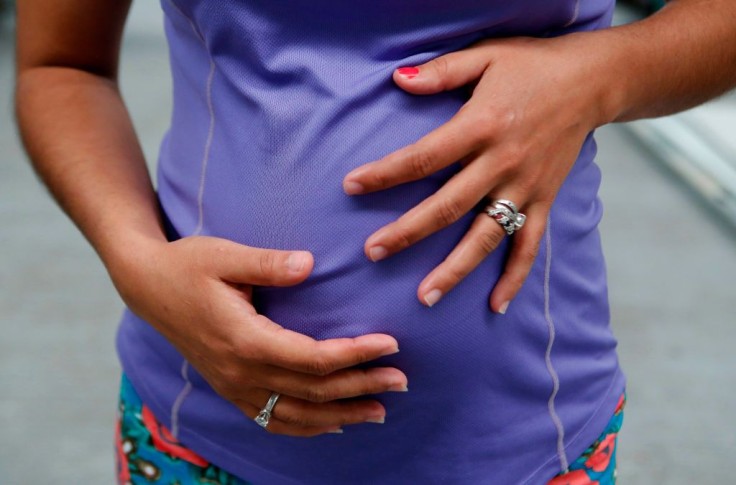
Srijaya Soujanya Nalla, MD, an OBGYN at Banner Health Clinic in Loveland, CO, gives awareness into the normal and abnormal causes of abdominal cramping during pregnancy, along with treatment recommendations.
What Is Normal Cramping During Pregnancy
In the early phase of pregnancy, it's natural to encounter occasional mild cramping in your lower abdomen as your body makes it ready for your growing baby," she added.
As your belly and uterus dilate, you may feel slight pulling, tugging, or stretching akin to period cramps.
Later in pregnancy, mild lower abdominal discomfort may result from the tightening of the uterus, often attributed to round ligament pain.
Other things to consider for mild cramping or implantation bleeding, gas, bloating, and constipation, sexual activity, exercise, and Braxton Hicks contractions.
Mild Cramping While Pregnant
Dr. Nalla advises monitoring the regularity and frequency of your cramps. If they remain within the normal range, here are several strategies for you to that that could alleviate them.
- Rest: Sit, lie down, or change positions.
- Immerse in the tub: Take a warm bath or shower.
- Take acetaminophen: Ask the healthcare provider before using pain relievers like Tylenol.
- Perform deep breathing: Use relaxation techniques such as meditation or yoga.
- Stay hydrated: Pregnant women need 50% more water, so keep a water bottle with you.
While cramping is common, severe cramps at regular intervals or those exacerbated over time are abnormal, according to Dr. Nalla.
Additionally, any cramping accompanied by prompt pain, vaginal bleeding, increased/watery vaginal discharge, or pelvic pressure is not normal.
"In some cases, an ultrasound can be done to find out the cause of acute cramping," advises Dr. Nalla. Serious cramping may indicate a matter such as miscarriage or an ectopic pregnancy, or it could be unrelated to pregnancy, such as a bladder infection or constipation-common occurrences in pregnancy.
When it comes to the health of the mother and the baby's health, it's better to be careful and ask your healthcare provider.
Normal Cramps in Early, Late Pregnancy
In the first trimester, cramps are a natural occurrence as the body equips itself for pregnancy. Even before noticing pregnancy, cramping in the lower abdomen or lower back, attributed to the process of implantation-the fertilized egg attaching to the uterus.
Post-pregnancy corroboration, effect of cramping from the enlargement of the uterus to assist the growing baby. This familiarity, akin to normal menstrual cramps, is usual for all women.
Beyond the first trimester, random cramping may still occur, given that the uterus, being a muscle, can contract and cause pain due to factors like gas, constipation, bloating, or a full bladder.
The second trimester generally sees less cramping compared to the first and third trimesters.
Expectant mothers carrying multiple babies may encounter increased cramping during the second trimester, whereas those with a single baby may run into it in the third trimester, as the body makes room to accommodate the growing baby.
Abnormal Cramps During Pregnancy
Uncommon cramping, particularly if serious and continuous, warrants immediate reporting to your doctor. While the cause might be gentle, ensuring safety is crucial.
Severe cramping could specify an ectopic pregnancy, where the fertilized egg implants in a fallopian tube rather than the uterus, posing a serious threat requiring prompt surgery.
Cramping on one side should also be described, as it could signal an ectopic pregnancy.
If cramping is with vaginal bleeding, prompt communication with the doctor is necessary, as it could indicate a potential miscarriage.
Diagnosis or exclusion of a miscarriage can be done through ultrasound or an hCG blood test.
Concerned individuals should contact WFMC Health to schedule an in-office or telehealth appointment for further guidance on cramps during pregnancy.
Relief for Pregnancy Cramps
To alleviate cramps, consider reducing physical activity and avoiding positions that induce cramping.
Taking a warm nightly bath and resting throughout the day can bring comfort.
Wearing a maternity belly band, particularly a simple, adjustable, and non-restrictive Velcro elastic belt under the belly, may also provide relief, as recommended by Dr. Bond.
Related Article: 3 Trimesters of Pregnancy: Your Roadmap to Motherhood